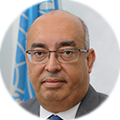Higher education is one of the key sectors that could contribute to economic growth and development in the increasingly global society, key to the comprehensive sustainable development of Africa. In line with this vision, various governments and non-governmental institutions have recently initiated several policies and models in an attempt to build quality higher education to develop Africa’s human capital, in order to positively respond to the global challenges. Despite these efforts, an observable gap still exists between higher education and the socio-economic development of Africa. With 48 countries and a population of over 1 billion, Sub-Saharan Africa (SSA) is one of the largest regions in the world, with a current gross tertiary education enrollment ratio of a meager 9.4%, well below the global average of 38%. Numbers of girls are more concerning, as they could excel at school but are then are pulled out to marry or do home chores. The sector is plagued by huge capacity deficits and challenges that threaten its survival, sustainability and contribution to the socio-economic development of the continent. While recognizing that the COVID-19 pandemic has put the education sector in general and higher education in particular in difficulty, we must recognize that the pandemic has helped unveil the problems experienced by students, professors and faculty alike, which in reality existed before the onset of the crisis. This therefore has pushed many to extend the reflection beyond the crisis caused by the pandemic and its socio-economic consequences.
Lack of investment for decades by governments has meant that the higher education institutions of Africa are currently not capable of responding to the immediate skills needs or supporting sustained productivity-led growth in the medium term. Moreover, low salaries of faculty, academic disruptions due to strikes, lack of research funding and laboratories or IT equipment, as well as limited autonomy, have been discouraging factors for qualified professors, or students, to stay in African universities. A key consequence of underdeveloped higher education institutions is high rates of migration of talents out of Africa in pursuit of training and research, and rewarding job opportunities abroad. Elite and senior government officials often compete on sending their children to the most prestigious universities in US or Europe, while neglecting tertiary education in their own countries.
Higher education is also essential to produce the teachers of tomorrow. Just as teachers are the central pillar of any education system, quality teachers produce quality education, a pre-requisite for a vibrant higher education. To produce quality teachers with the needed competencies and skills, there is need for a strong and quality higher education. An endless vicious circle in most countries, exacerbating the current pattern of skills production in Africa that do not match labor market demand or development needs, with choked public sector recruitment and a private sector struggling to find competent candidates. The recent trend in African higher education is the low percentage of graduates in areas of engineering, technology, mathematics, agriculture, health and science. Currently, most African countries face shortages of human resources and capacity within these disciplines, often depending on expat expertise for basic development projects. Despite all efforts, women are increasingly underrepresented in higher education, in particular in the science and technology fields. While we come across more and more great success stories of highly educated women increasingly accessing corporate or public positions, women are generally contributing to the informal economy, small scale businesses. How much they could develop their businesses, and Sub-Saharan Africa, if they had access to secondary and tertiary education?
Furthermore, the humanitarian crises in the continent have had a toll on its youth. According to the United Nations High Commissioner for Refugees, sub-Saharan Africa hosts more than 26 percent (over 18 million) of the world’s refugees. This number has soared over the years, partly due to the ongoing crises in the Central Africa Republic, Nigeria, Cameroon, South Sudan and Burundi to name a few. Millions of these refugees and IDPs were students, who are now deprived of any access to higher education, with large numbers of them engaging in negative coping mechanisms such as drug consumption, criminality, terrorism, and associating with non-state armed groups.
Nearly 8 out of 10 children who begin school in grade 1 in most African countries experiencing conflict and fragility do not transit to tertiary education. Recent gross enrolments at tertiary levels were estimated at 9% in SSA compared to 42% in Middle East & North Africa compared to 52% in Latin in America & Caribbean, 70% in Europe & Central Asia and 86% in North America. Tertiary enrolment rates are particularly low, as low as less than 3%, in many fragile countries such as Burundi, Ethiopia, Eritrea, Chad, and Central African Republic.
Examples include, the Lake Chad basin youth who have no opportunities to continue their education and have no alternative other than joining Boko Haram, or Cameroon Anglophone region students deprived since 2016 from completing their secondary education, with no chance to ascend to university, with no alternative but to engage with non-state armed groups and other forms of juvenile delinquency and criminality. During a recent visit to Lake Chad Basin islands in Chad, on one of the islands a group of youths were sitting idle under a well shading Acacia tree. “We have no opportunities as we have no access to schools, universities or internet or even electricity in this region” they stated with sorrow.
A great number of these youths could have had the opportunity of accessing higher education via distance learning or mutual recognition systems of degrees. However, millions of these students lack ICT skills and equipment, or even connectivity or mobile coverage to facilitate their access to distance learning platforms and other learning opportunities. This situation has contributed to increased conflicts, terrorism, youth unemployment, poverty, criminality, and emigration attempts to Europe. In despair and hopelessness, thousands of youths find their tragic fate in deserts or drowning in the Mediterranean. An emergency UNESCO programme to provide distance education to the Cameroon Anglophone region students in 2019 to save students banned by separatists from going to schools opened a window of opportunity for new digital solutions to the challenge of access to any hope, any education.
The situation described above, raises the question of how access and quality of higher education on the continent could be improved to make the needed contribution to the comprehensive development of Africa. Education has a powerful role to play in long-term prevention of violent extremism by empowering learners, equipping them with the right skills and competencies, and increasing employment opportunities. While graduates of many African higher educational institutions go unemployed, substantial shortages of skilled labor persist. The challenge is to improve the relevance of education, and to increase both the quantity and the quality of graduates through investments in laboratories and human resources for these disciplines, improve the link with employers to raise relevance and foster strong international collaboration to raise quality, with ITC and connectivity as the main driver. Higher education can be shaped as a public good and as a driver of social and economic growth. Values such as respect, empathy, equality, and solidarity should be at the core of future higher education institutions and their missions.
The mission of universities in the years leading to 2050, when the population of Africa is projected to have doubled to 2 billion, should be taking immediate active responsibility in the development of the potential of all humans, promoting well-being and sustainability oriented towards sciences and research and development, overcoming the digital gap, tackling climate change, in parallel with a focus on justice, solidarity and human rights, as well as preventing violent extremism. In recent debates also triggered by the current crisis, in spite of the wealth in traditional medicine and natural products, the current pandemic exposed the total dependence on developed countries for a vaccine or a cure, or even minimally equipped hospitals, revealing the dire state or total absence of R&D and fragility or even absence of a reliable health sector. Many cries echoed the urgent need to enhance universities’ capacity to develop R&D for local remedies, but local universities are still not equipped. Infrastructure of most universities are in despicable conditions, not conducive to teaching, let alone embarking in any research meeting international standards, or contributing to any community development initiatives.
We cannot move forward with business as usual and have to use the wakeup call offered by the COVID-19 pandemic as a real opportunity and a challenge to build back better, with fit for context, innovative and scalable solutions in education capable of keeping up with the world’s fourth industrial revolution.
There is the need to promote innovation in the entire education and skills development ecosystems, taking advantage of the digital revolution, in order to widen access, increase its impact and also ensure that disadvantaged groups are not left out. The leapfrog transition to the numeric and virtual world offered to us by the pandemic should be capitalized on through ICT development for teaching, learning and research. It will also be instrumental in making African scholarly works available to the wider audience in and outside Africa, facilitating graduate fellowships and small grants for PhD support, linking universities to the productive sectors of the economy, and giving support to African higher education institutions to assist their host countries in achieving the sustainable development goals through policies. The concept of inclusive education need not be left out, promoting it in action and not just in theory.
There is dire need to review continent wide higher education strategies and policies in order to improve equitable access to quality higher education and enhance mobility and accountability. In a more globalized village, innovative initiatives are needed at regional and national levels, working in close cooperation with governments, private sector, donors, and stakeholders, to address quality enhancement, internationalization and digital education. The Global Convention on the Recognition of Higher Education Qualifications adopted in 2019 was to facilitate international academic mobility and promote the right of individuals to have their higher education qualifications evaluated through fair, transparent and non-discriminatory manners. Lack of commitment and funding by many countries still hinders the great potential it offers.
Finally, the roadmap for SDG4, the Education 2030 Framework for Action (FFA), has two central policy pillars which focus on monitoring and improving learning outcomes and those who are excluded. The FFA calls for progress regarding existing international agreements in favor of higher education and recognizes that a well-established and well-regulated tertiary education system can improve access, equity, quality and relevance. It can also reduce the dissonance between what is taught and what needs to be learned to ensure sustainable development and take advantage of technology, open educational resources and distance education. Well-informed higher education systems can be strengthened based on strong normative instruments and institutions with a focus on access for all, linking data on higher education with job markets.
Public private partnership and collaboration are key in the coming years, with the private sector and specifically telecom providers having a greater role to play by strengthening the capacities of universities to overcome the digital gap, governments increasing their total expenditures and strengthening data and statistics platforms with more accurate and transparent Higher Education Management Information Systems (HEMIS) for better more efficient planning and enhancing cooperation to overcome difficulties in the new normal. The current disproportionate support by donor countries focused mostly on primary basic education, with some minimal support to secondary education and quasi none to tertiary education, is also contributing to unbalanced access.
The COVID-19 pandemic has clearly offered a unique opportunity to conclude that digital distance education is increasingly proving its relevance to potentially unlock education opportunities and potential for Africa’s youth, including those in fragile or remote deprived rural settings, by reducing the costs of being physically at school, guaranteeing access to quality relevant modern content, and offering opportunities for collaboration especially in terms of sharing learning Open Education Resources. This collaboration is timely in Africa, especially between learnings institutions in fragile settings and those in well-resourced settings.
With all its wealth in terms of natural resources and human capital, we have no other choice but to strengthen higher education to give the African youths’ potential an opportunity, an alternative.

Salah Khaled
Mr. Salah Khaled took over duty last February 1, 2018 as Director of the UNESCO Multisectoral Regional Office (Central Africa) in Yaoundé (Cameroon) and UNESCO Representative to Angola, Burundi, Cameroon, Central African Republic, Chad, Equatorial Guinea and Sao Tome and Principe. Mr Khaled’s career with the United Nations began in 1993, with the Operational Unit for Development Assistance (OUDA), a UNDP and Ministry of Foreign Affairs programme in Egypt, and subsequently at the UNICEF Office in Cairo from 1995 to 2001.
He joined UNESCO in 2001 taking up several key positions in some post‐conflict and post‐disaster countries. From 2001 to 2003, he was Chief of the Iraq Liaison and Procurement Unit based in Amman (Jordan) facilitating the Organization’s operations in Iraq under the Oil for Food Programme.



